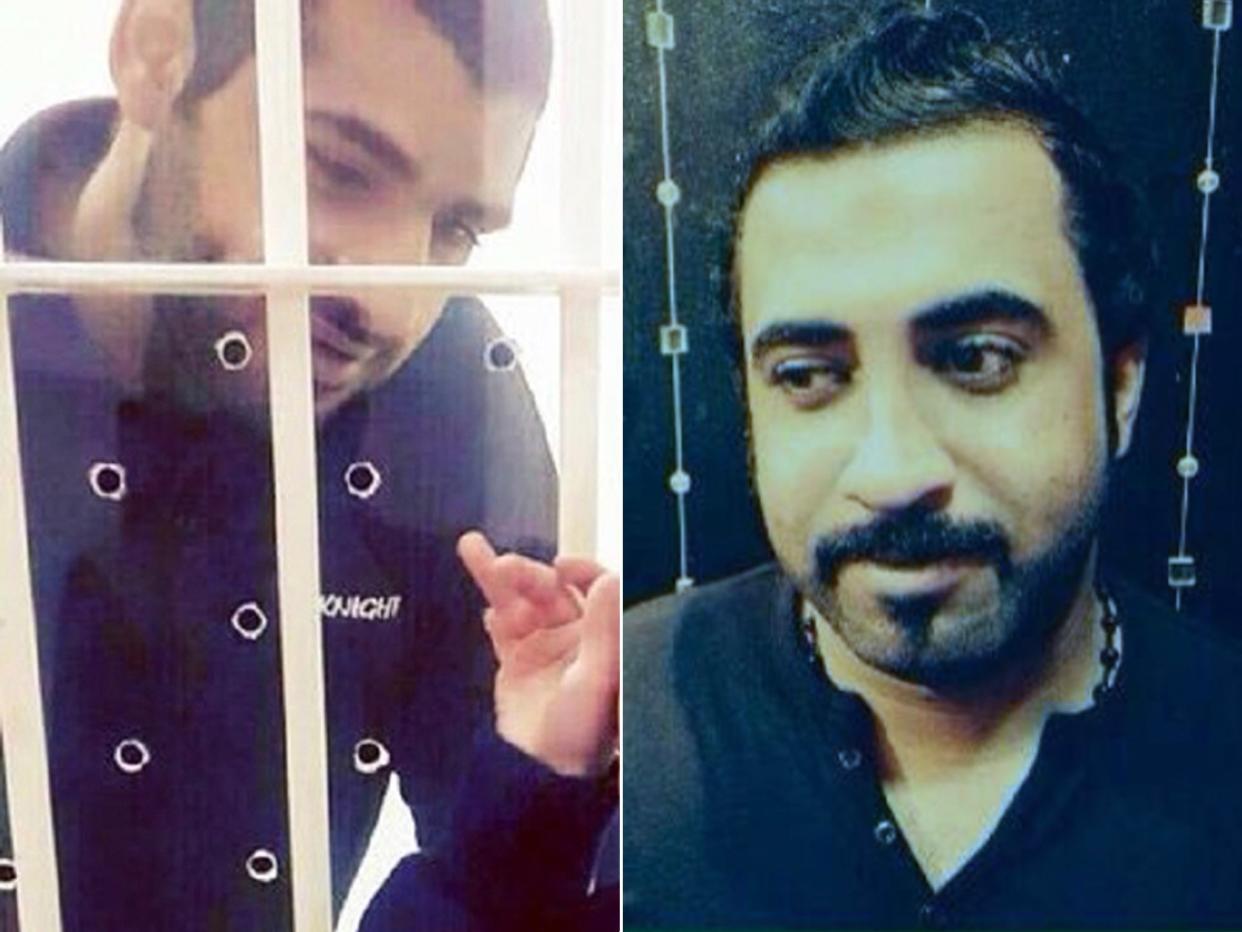I have been tortured and jailed in Bahrain for seven years. Does the UK support that too?

I write today from Bahrain’s notorious Jau Prison, where I have spent the last seven years as a political prisoner for organising protests calling for democratic reform. I am one of thousands of Bahrainis rounded up, tortured and handed lengthy sentences in unfair trials as part of a government crackdown on dissent that continues to this day.
The abuse I was subjected to has left me with a slew of injuries which continue to plague my daily life. During hours of brutal beatings, my nose was broken so badly it required two operations to fix and I was left with partial deafness and permanent damage to my testicles and jaw. Yet while my experience may sound shocking, torture has long been a tool of political control in Bahrain and hundreds of my fellow prisoners have similar stories.
News recently reached the prison that the British government has introduced “Magnitsky-style” sanctions against international human rights abusers, raising hopes among some prisoners that those responsible for our torture and imprisonment might held to account. However, for those familiar with Britain’s long friendship with Bahrain, these hopes seem misplaced.
The British government often boasts about opposing torture, but it has in fact played a historic role in its institutionalisation in Bahrain and continues to turn a blind eye to abuses in its former protectorate to this day. In the 1920s, the UK was responsible for establishing Bahrain’s first police force and contemporary sources reveal that many torture techniques I was personally subjected to, including targeted beatings and sleep deprivation, were introduced during this period.
Since Bahrain’s independence in 1971, the UK government has remained close with Bahrain’s ruling family and has been reluctant to criticise their dismal human rights record. Bahraini state newspapers, which are all that’s available to prisoners since the regime shut down the country’s only independent newspaper in 2017, frequently brag about the UK’s support for Bahrain, particularly their efforts to reform our notoriously abusive police and judiciary. However, despite receiving thousands of pounds from the British taxpayer, these institutions remain as corrupt as ever.
Torture remains central to Bahrain’s justice system and study visits to the UK by Bahraini judges have done nothing to lessen the reliance of Bahrain’s courts on coerced confessions. Substantial evidence suggests that five of the six men executed in Bahrain since 2017 were tortured into providing false confessions; I shared a cellblock with one of these men, a gentle 27-year old schoolteacher named Abbas Al-Samea, and I will never forget my horror when I learned he and two others had been shot dead by a state firing squad.
Bahrain’s injustice system remains as ruthless today. Just last month, torture victims Mohammed Ramadhan and Husain Moosa had their final appeal against their death sentences rejected, in a trial damned by numerous British MPs, leading NGOs and top human rights lawyers as fundamentally flawed. They join 10 other Bahraini political prisoners who have exhausted legal remedies and face imminent execution.
The UK’s attempts to address the rampant impunity enjoyed by Bahraini security forces have been similarly unsuccessful. Much vaunted local oversight bodies, trained at the expense of the British taxpayer and mandated to investigate human rights violations, have attracted widespread international criticism for their proximity to the government. I experienced this collusion first-hand; when I was assaulted by prison guards in 2015 in full view of CCTV cameras, these institutions actively covered-up the attack, even after I provided the names of the officers responsible.
Such complicity continues to this day. Earlier this summer, my fellow prisoner Mahmood Aljazeeri, a journalist imprisoned for writing articles critical of the government, was placed in solitary confinement for challenging false statements made on Bahraini television by the head of one of these same UK-funded bodies.
Bahraini prison staff, too, have benefited from British training, enjoying guided tours of prisons in Britain and Northern Ireland to learn best practice. Yet prisoners continue to languish in squalid, overcrowded conditions, with social distancing rendered impossible and prisoners still not provided masks or hand sanitiser months after the pandemic began.
These conditions have led to an ongoing scabies outbreak, which has infected most prisoners in my building, including myself. Scabies is a highly contagious skin disease which thrives in unsanitary environments and is exacerbated by Bahrain’s baking summers, where temperatures regularly exceed 40°c. As the Bahrain Institute for Rights and Democracy and 20 other rights groups recently stated, should Covid-19 reach Jau Prison the effects would be devastating, particularly for aging political leaders with underlying health conditions.
Such disregard for inmates’ health is nothing new and medical negligence has long been one of Bahrain’s most insidious means of abusing political prisoners. Over the past two years, I have been forced to conduct two 75-day hunger strikes just to secure medical treatment. After having 13 teeth removed almost a year ago, I am still awaiting follow-up surgery and struggle to even consume solid food. Now coronavirus is being used as an excuse to further deny us medical care, with all external appointments cancelled until further notice.
Britain’s unwavering support for Bahrain has provided the regime with a convenient veneer of reform behind which they continue to terrorise their population. Even the handcuffs we are forced to wear when moving around the prison are a reminder of this pernicious relationship, bearing the letters TCH ENGLAND, a Birmingham-based security company.
For all Bahraini political prisoners, it is painful to watch the UK government consistently side with our abusers while we suffer behind bars. If the government is serious about reform in Bahrain, they should begin by calling for all political prisoners to be released.
Read more
Bahrain is holding my family hostage – and the UK is abetting them
Government under pressure to act over Bahrain torture allegations
Bahrain releases leading human rights activist Nabeel Rajab
Bahrain tortured my family – the UK's loyalty to it speaks volumes


